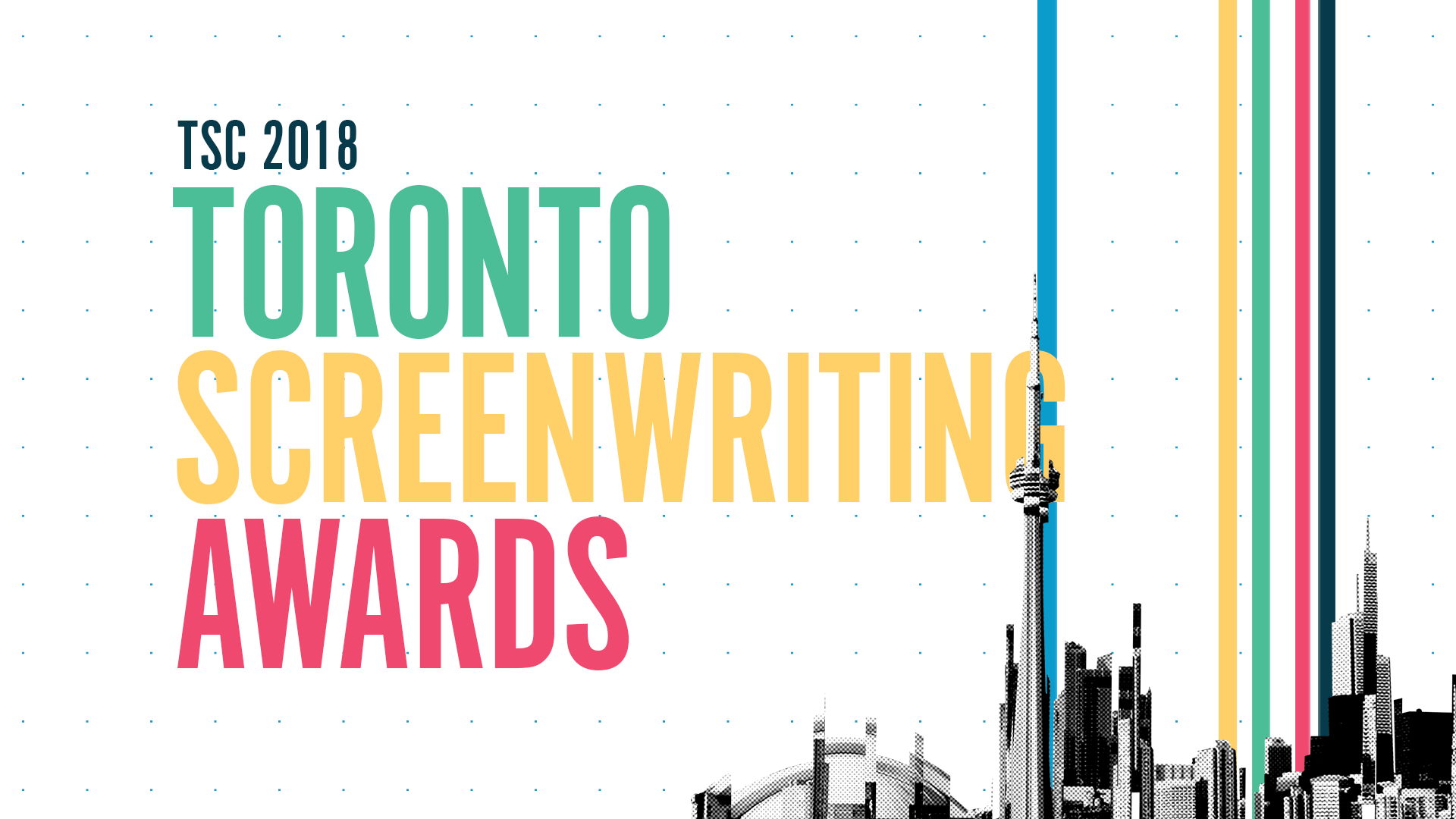
Toronto Screenwriting Awards
Awards Submission
Deadline to submit is Monday, April 30 at midnight EST.Scripts must be in PDF format.
Scripts must have a title page with title of the script only (no contact information).
Television submissions must include a title page with the name of the series and episode only.
No contact information or name of author in the body of the script.
Submission fee of $95 CAD must be received.
Film submissions may only be submitted by the writer.
TV submissions may only be submitted by the showrunner.
A maximum of three script submissions per series.
Films and episodic content may originate or have aired anywhere in the world as long as the script was originally written in English. No translations.
Films must have been theatrically released, screened at a film festival, or premiered on premium SVOD such as Amazon Prime, HBO, Netflix, Showtime, or Starz between January 1, 2017 and December 31, 2017.
TV episodes must have broadcast on network, cable, premium SVOD such as Amazon Prime, HBO, Netflix, Showtime, or Starz between January 1, 2017 and December 31, 2017.
DRAMA
Feature length drama screenplay candidates are predominantly serious. In this category the exposition, rising action, climax and falling action are written for dramatic impact. The characters, descriptions and tone should also reflect dramatic qualities. While candidates in this category can have comedic moments, characters or scenes, comedy should not be the primary intention of the screenplay.
COMEDY
Feature length comedy screenplay candidates are predominantly funny. In this category the exposition, rising action, climax and falling action are written for comedic impact. The characters, descriptions and tone should also reflect comedic qualities. While candidates in this category can have dramatic moments, characters or scenes drama should not be the primary intention of the screenplay.
GENRE
Feature length genre screenplay candidates are written with science fiction, fantasy, horror, or supernatural elements. This category will take into consideration heightened realties, new universes, and scenarios beyond the expectations of our everyday world. While these screenplays can have heavy dramatic or comedic elements the stories will primarily include, but not be limited to: monsters, imagined futures, space travel, superheroes, fantasy worlds, and the paranormal.
ANIMATION
Feature length screenplays that incorporate the medium of animation. Styles include, but are not limited to, 3D animation, hand drawn, and stop motion. All animation screenplays will be accepted regardless of its target audience (ie. children or adults).
SERIALIZED
Dramatic teleplay wherein the main storyline or character arcs span multiple episodes or seasons. Serialized series may have episodic elements in some arcs however the main fundamentals of any specific episode or the series do not promise an ending to the main series arcs or main series characters until the series produces its final episode.
PROCEDURAL
Dramatic teleplay wherein the primary narrative wraps up by the end of the episode. These generally include, but are not limited to, case of the week/detective, crime/law, or medical shows. Although procedurals may have some serialized elements the main focus of each episode should be closed in nature.
GENRE
Genre teleplay candidates are written with science fiction, fantasy, horror, or supernatural elements. This category will take into consideration heightened realties, new universes, and scenarios beyond the expectations of our everyday world. While these screenplays can have heavy dramatic or comedic elements the stories will primarily include, but not be limited to, monsters, imagined futures, space travel, superheroes, fantasy worlds, imagined futures, and the paranormal.
FAMILY
Family dramatic teleplays utilize rising action, climax and falling action are written for dramatic impact that is appropriate for kids under twelve or family co-viewing. The characters, descriptions and tone should also reflect dramatic qualities. While candidates in this category can have comedic moments, characters or scenes, comedy should not be the primary intention of the teleplay.
SINGLE CAMERA
Single camera comedy teleplays are primarily humourous in narrative, dialogue, character, tone and must incorporate the single camera modality of production.
MULTI CAMERA
Multi camera comedy teleplays are primarily humourous in narrative, dialogue, character, tone and must incorporate the multi camera modality of production.
YOUTH & FAMILY
Youth and Family comedy teleplays utilize rising action, climax and falling action are written for comedic impact that is appropriate for kids under twelve or family co-viewing. The characters, descriptions and tone should also reflect comedic qualities. While candidates in this category can be single cam, multi cam or animated the intention of appealing to youth and family audiences through moments, characters or scenes should be the primary intention of the teleplay.
ANIMATION
Comedy screenplays that incorporate the medium of animation. Styles include, but are not limited to, 3D animation, hand drawn, and stop motion. All animation screenplays will be accepted regardless of its target audience.
How long are submissions open?
How do I enter?
I have a screenplay that wasn’t produced. Can I still submit?
How many scripts can I submit?
Is there any entry script page length maximum or minimum?
I co-wrote a script, can I enter?
What if my script fits more than one category (ie. is both genre and drama?)
Who can submit?
Are citizens other than the United States and Canada allowed to enter?
Can a showrunner submit themselves?
Can I submit more than one script if I wrote on more than one show.
What does the cost of entry cover?
When will we be notified?
How are winners chosen?
My script is not in English, but aired in North America. May I still enter?
Why do I need a logline and synopsis? Are they used in the judging?
What happens to my script if it is not chosen?
How does the judging process work?
Who are the first round readers?
Questions?
- A cover sheet with only the TITLE of the screenplay
- A second title page with contact information is not required for online submissions
- The author’s name must not appear anywhere in the script in order to preserve anonymity in the judging process
